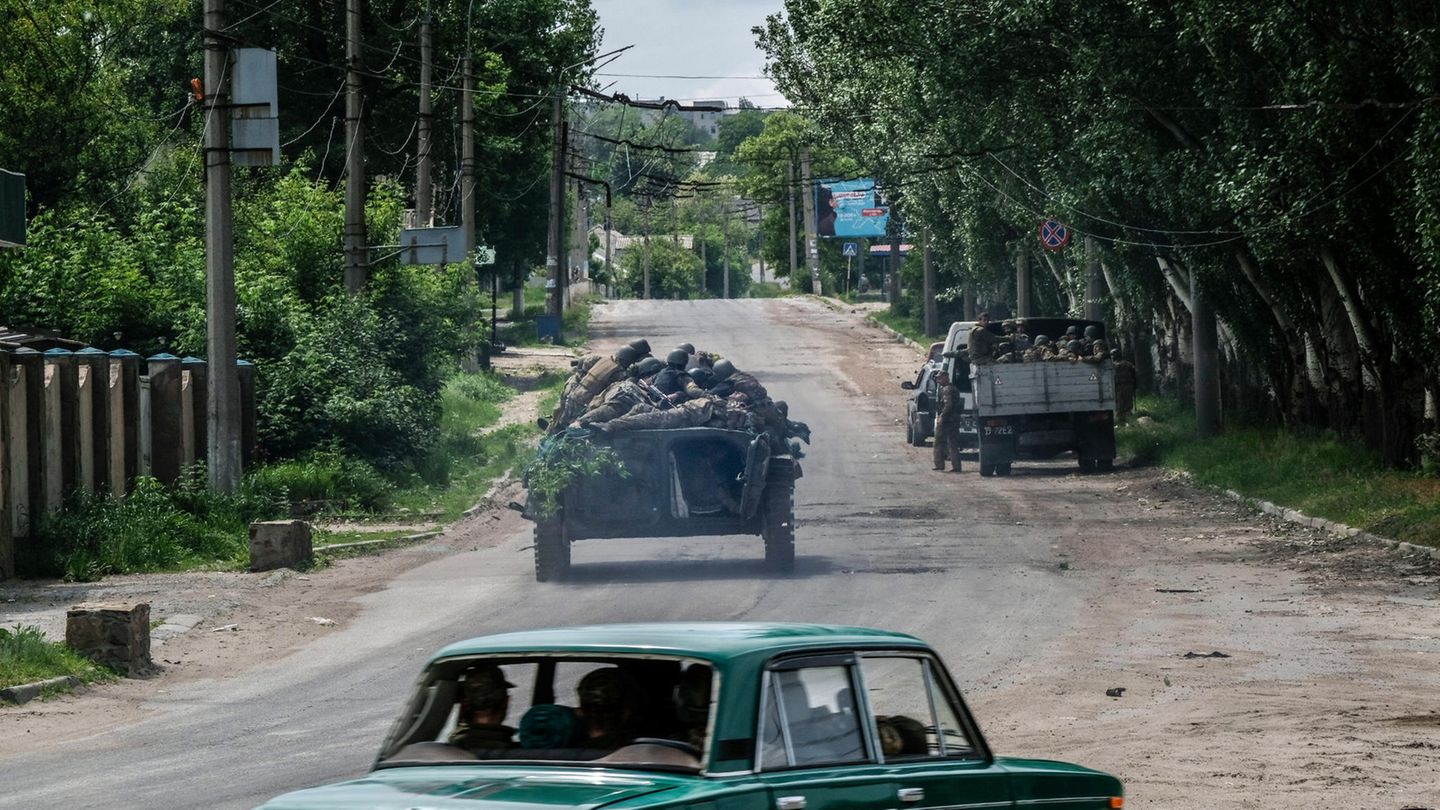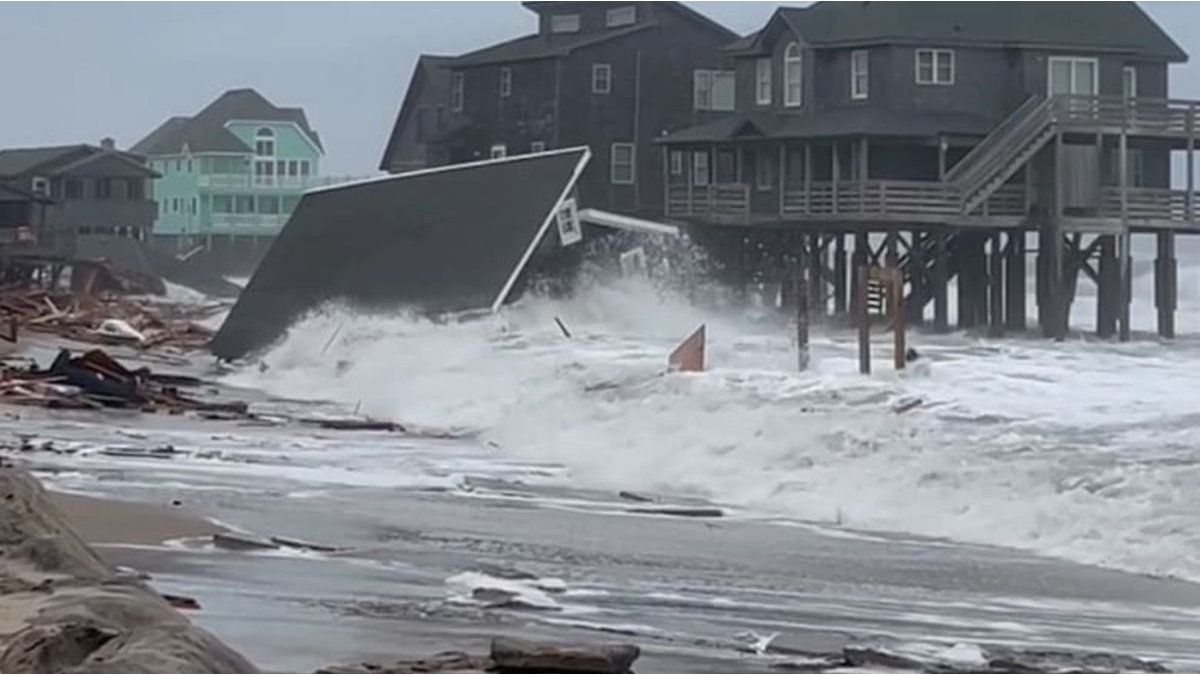The Ukrainian troops largely lost the battle for Sievjerodonetsk. But Lyssychansk, the neighboring city on the other side of the river, was also badly damaged. Residents describe depressing scenes. A report from the front.
Maksym Katerin’s eyes are red. He is standing in his garden in the Ukrainian frontline town of Lysychansk in front of two fresh graves strewn with rose petals. A grenade hit the garden here on Sunday. His mother Natalija and stepfather Mykola, both 65 years old, died instantly.
After months of shelling by Russian troops, the strategically important city of Lysychansk in eastern Ukraine, located between Kramatorsk and Sievjerodonetsk, has been badly damaged. There is no drinking water, no electricity and no telephone network. Ukrainian artillery used the high position of Lysychansk against Russian troops fighting for Sievarodonetsk on the other side of the river.
Katerin’s neighbor Yevgenia Panicheva cries when she thinks about the death of Katerin’s mother. Her “belly was torn open,” she reports. “She was a very good, kind and helpful woman,” she adds. “They bomb and they bomb – and we don’t know what to do.”
A dud sticks out of the street
Their once-green avenue, lined with mulberry and cherry trees, faces the Russian positions across the river, with Ukrainian artillery stationed nearby. A house was completely obliterated by the shelling, a dud juts out of the street.
Nataliya and Mykola were not the only civilian casualties in Lysychansk on Sunday. A six-year-old boy was also killed, police say to the AFP news agency.
Torn power cables lie on the street in the center of the city, which was home to almost 100,000 people before the war. Malls are burned out, the sky is yellow and the air is filled with the acrid stench of smoke.
Oleksandr Pochna, a lieutenant colonel in a special police unit, says the shelling is increasing every day. The police are trying to persuade as many residents as possible to evacuate.
Residents of Lysychansk: “We have nowhere to go”
The few people who venture outside are on foot or by bike. At a fire station, some of them are queuing for greenish looking water. They say they can’t leave: because of a lack of money, because of their relatives or because they have to take care of small children and pets.
Sergiy, a metal worker, says: “We have little twins who are five months old, so we have nowhere to go, we’re in the basement.”
Some of the people queuing for water are calling for negotiations to end the conflict. “Can’t we come to an agreement without guns?” asks a woman named Galina. “We must try to reach an agreement.”
Many people in the city have only seen Ukrainian soldiers and are cut off from any sources of information. They blame Kiev’s troops for the shelling. An angry woman, who declined to be named, says: “It’s the Ukrainians who are bombing us. They don’t see us as human beings. They call us separatists.” An old man agrees: “It was our own people – the Ukrainians.”
Residents of Donbass feel closer to Moscow than Kyiv
Many residents of the primarily Russian-speaking Donbass coal region feel closer to Moscow than Kyiv. Officer Pochna is aware of the mood, but confirms: “The Ukrainian army is only defending itself.”
Meanwhile, the pounding of shelling can be heard almost continuously, as well as the sustained thunder of Russian missile launch systems. Unless a miracle happens, the city will soon be completely destroyed, as will the neighboring city of Sievarodonetsk
Source: Stern
David William is a talented author who has made a name for himself in the world of writing. He is a professional author who writes on a wide range of topics, from general interest to opinion news. David is currently working as a writer at 24 hours worlds where he brings his unique perspective and in-depth research to his articles, making them both informative and engaging.




